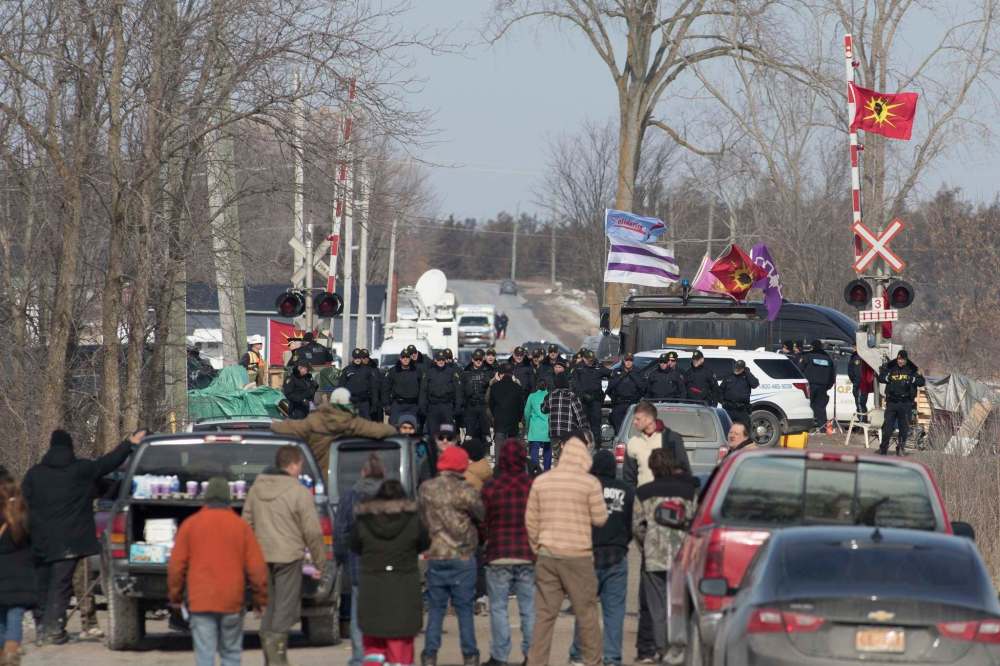Manitobans split on allowing civil disobedience
Advertisement
Read this article for free:
or
Already have an account? Log in here »
To continue reading, please subscribe:
Monthly Digital Subscription
$0 for the first 4 weeks*
- Enjoy unlimited reading on winnipegfreepress.com
- Read the E-Edition, our digital replica newspaper
- Access News Break, our award-winning app
- Play interactive puzzles
*No charge for 4 weeks then price increases to the regular rate of $19.00 plus GST every four weeks. Offer available to new and qualified returning subscribers only. Cancel any time.
Monthly Digital Subscription
$4.75/week*
- Enjoy unlimited reading on winnipegfreepress.com
- Read the E-Edition, our digital replica newspaper
- Access News Break, our award-winning app
- Play interactive puzzles
*Billed as $19 plus GST every four weeks. Cancel any time.
To continue reading, please subscribe:
Add Free Press access to your Brandon Sun subscription for only an additional
$1 for the first 4 weeks*
*Your next subscription payment will increase by $1.00 and you will be charged $16.99 plus GST for four weeks. After four weeks, your payment will increase to $23.99 plus GST every four weeks.
Read unlimited articles for free today:
or
Already have an account? Log in here »
Hey there, time traveller!
This article was published 11/05/2020 (2045 days ago), so information in it may no longer be current.
More than half of Manitobans polled indicated they favour police using “whatever legal force is required” to end disruptive displays of civil disobedience, such as February’s rail blockades in support of the Wet’suwet’en hereditary chiefs’ opposition to the Coastal GasLink pipeline through unceded territory.
The survey was conducted by Probe Research and polled 1,000 Manitobans on the issue between March 10 and 24.
Among those who supported police intervention in these displays of civil disobedience, rural Manitobans were more likely to be in favour of intervention, as were men, those who had lower levels of formal education and there was also a sharp political divide — supporters of the provincial Progressive Conservative Party are twice as likely as supporters of the New Democrats or Liberals to be in favour of having blockades removed by police.

“We expected there would be some difference but not that stark,” said Curtis Brown, principal with Probe Research.
While 87 per cent of respondents said that picketing in front of the legislature was an acceptable form of protest, that acceptance dropped to 40 per cent of respondents approving of protesters blocking critical infrastructure for a matter of hours, and if the timeline expanded support dropped even further (26 per cent). Protesting outside of a politician’s home was only seen as an acceptable form of protest by three in 10 people, only one in 10 supported protest in the form of spray painting public buildings or statues.
“I think in many ways, it does show that people are OK with (civil disobedience) as long as it doesn’t inconvenience them too much,” Brown said. “It was certainly a hot-button topic at the time, and COVID certainly eclipsed it, but I think — as a society — we’re going to be grappling with these sorts of questions for a long time.”
sarah.lawrynuik@freepress.mb.ca

